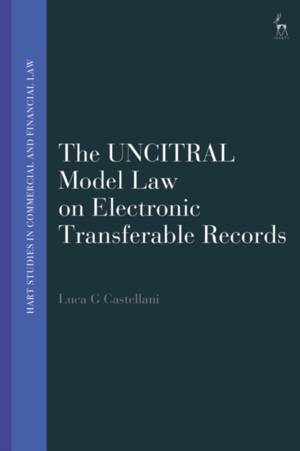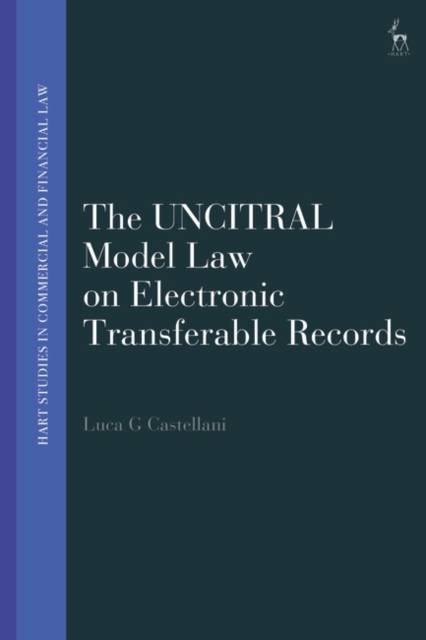
- Afhalen na 1 uur in een winkel met voorraad
- Gratis thuislevering in België vanaf € 30
- Ruim aanbod met 7 miljoen producten
- Afhalen na 1 uur in een winkel met voorraad
- Gratis thuislevering in België vanaf € 30
- Ruim aanbod met 7 miljoen producten
Zoeken
Uncitral Model Laws on Digital Trade
Electronic Transferable Records, Digital Identity and Trust Services
Luca G Castellani
€ 220,45
+ 440 punten
Omschrijving
This book provides a detailed analysis of two UNCITRAL texts: the Model Law on Electronic Transferable Records (MLETR) and the Model Law on the Use and Cross-border Recognition of Identity Management and Trust Services (MLIT).
The MLETR is the legal tool that enables the use of trade documents such as bills of lading and promissory notes in electronic form. The book discusses core MLETR provisions such as those on scope of application, functional equivalence, and reliability standards. It illustrates national variations in enactment techniques and substantive content, including in France, Singapore, and the United Kingdom. The MLIT provides the legal framework to manage identity management and trust services, including electronic signatures. The book explains the different approaches to giving legal recognition and effect to identity management and trust services, both domestically and across borders. It discusses the legal framework to accommodate functions and needs of identity management, describes trust services against the background of pre-existing UNCITRAL texts, and takes into account the revised EU eIDAS Regulation. Providing an article-by-article commentary as well as an overview of implementation trends, the book is a fundamental resource for commercial, maritime and banking lawyers, digital economy policymakers, legislative drafters, supply chain management and paperless trade specialists, and for anyone interested in understanding the legal aspects of the transition from documents to data in trade.Specificaties
Betrokkenen
- Auteur(s):
- Uitgeverij:
Inhoud
- Aantal bladzijden:
- 264
- Taal:
- Engels
- Reeks:
Eigenschappen
- Productcode (EAN):
- 9781509937417
- Verschijningsdatum:
- 18/09/2025
- Uitvoering:
- Hardcover
- Formaat:
- Genaaid
- Afmetingen:
- 156 mm x 234 mm
- Gewicht:
- 544 g

Alleen bij Standaard Boekhandel
+ 440 punten op je klantenkaart van Standaard Boekhandel
Beoordelingen
We publiceren alleen reviews die voldoen aan de voorwaarden voor reviews. Bekijk onze voorwaarden voor reviews.








